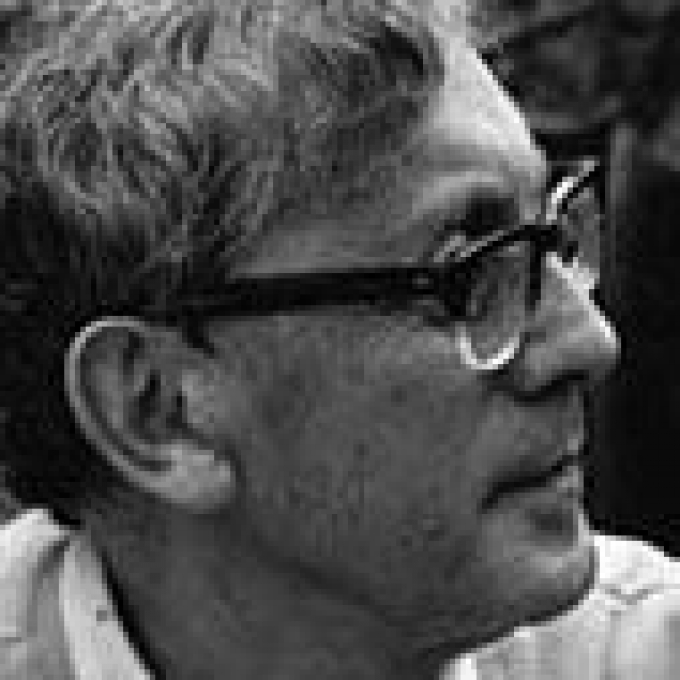
Charles Causley
- Launceston, England
Biography
Prize-winning poet, playwright and children's author Charles Causley was born in Launceston, Cornwall, on 24 August 1917, and was educated at Launceston College and Peterborough Training College.
He began writing plays in the 1930s including Runaway (1936) and The Conquering Hero (1937), and served in the Royal Navy during the Second World War, an experience he wrote about in Hands to Dance: Short Stories (1951), and in his first two collections of poetry, Farewell, Aggie Weston (1951) and Survivor's Leave (1953). Union Street: Poems (1957) included poems from both collections and was published with an introduction by the writer Edith Sitwell.
After the war he trained to be a teacher, teaching at the grammar school in Launceston, and became literary editor of two BBC radio magazines, 'Apollo in the West' and 'Signature' (1953-6). In 1954 and 1966 he was awarded Travel Scholarships by the Society of Authors. He served on the Poetry Panel of the Arts Council of Great Britain from 1962-6 and was awarded the Queen's Gold Medal for Poetry in 1967. He later won a Cholmondeley Award (1971) and the Ingersoll Foundation T. S. Eliot Award (USA) in 1990. In 2000 he was awarded the Heywood Hill Literary Prize.
Other poetry books by Charles Causley include the collections Johnny Alleluia: Poems (1961), Underneath the Water (1968), Secret Destinations (1984), and A Field of Vision (1988), as well as poetry written for children including Figgie Hobbin: Poems for Children (1970), Jack the Treacle Eater (1987), winner of the Kurt Maschler Award, and The Young Man of Cury and Other Poems (1991). He also edited and contributed to numerous poetry anthologies and wrote the librettos to William Mathias' opera Jonah, and Phyllis Tate's St Martha and the Dragon.
Charles Causley was made a Fellow of the Royal Society of Literature in 1958, and a CBE in 1986. He held honorary degrees from Oxford and Exeter, where he was also Honorary Fellow in Poetry.
Charles Causley died on Tuesday, 4 November 2003, aged 86.
Critical perspective
Charles Causley remained remarkably consistent throughout his long career.
His great achievement has been to keep the ballad alive in urban times and to adapt such traditional forms to modern matter. His first book appeared in 1951 and many poems reflected his service in the war. 'Recruiting Drive' illustrates his modern ballad style well:
'He says I have no culture
And that when I've stormed the pass
I shall fall on the farm with a smoking arm
And ravish his bonny lass.'
Causley employs all the traditional devices of metrical poetry, including refrain, and his poetry could be said to be conservative in that the conclusions are never surprising, the emotions invoked are conventional and beat to the traditional tune of nature and its epiphanies. Folkloric devices help to give the poetry a timeless feel of oracular wisdom: 'A penny of brass and a crown of tin / And a fire of spice for original sin?' His imagery, especially in the ballads, is sharp and highly coloured: 'the Yankee-white wheat', 'the vermilion forest', 'the black-buttered gun'. These are all from one poem, 'The Ballad of the Five Continents'.
Causley served in the Navy in World War II and his many poems about the sea evoke its timeless allure:
'In Broad Street in Summer we saw the boys hauling
The Yankee white wheat on the bowl of the bay,
Between us the sword of the sun where we lay
Bloody with poppies...'
('Ballad of the Five Continents')
He has a dry sense of humour, as in 'Betjeman, 1984':
'Take your ease, pale haired admirer,
As I, half the century saner,
Pour a vintage Mazawattee
Through the Marks and Spencer strainer
In a genuine British railways
(Luton Made) cardboard container.'
His later poems are sparer and the rhythms less jaunty, as in the poem about his parents, 'Eden Rock':
'They beckon to me from the other bank.
I hear them call, "See where the dream path is!
Crossing is not as hard as you might think."
I had not thought it would be like this.'
Causley is a poet, like Norman Nicholson, who lived in the same place all his life (apart from his war service) and never strained for effect or new subject matter. He worked as a teacher and his poetry for children is extremely popular. His adult poem 'Timothy Winters' is probably the best-known brat poem ever written:
'Timothy Winters comes to school
with eyes as wide as a football pool,
Ears like bombs and teeth like splinters;
A blitz of a boy is Timothy Winters.'
Peter Forbes